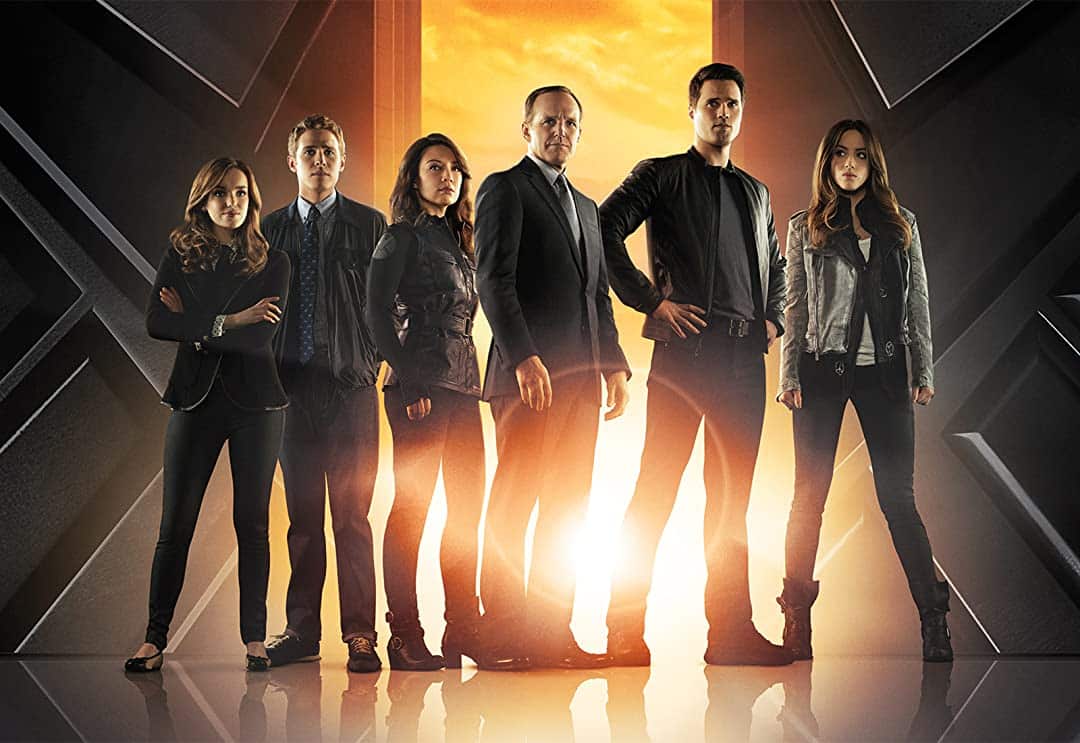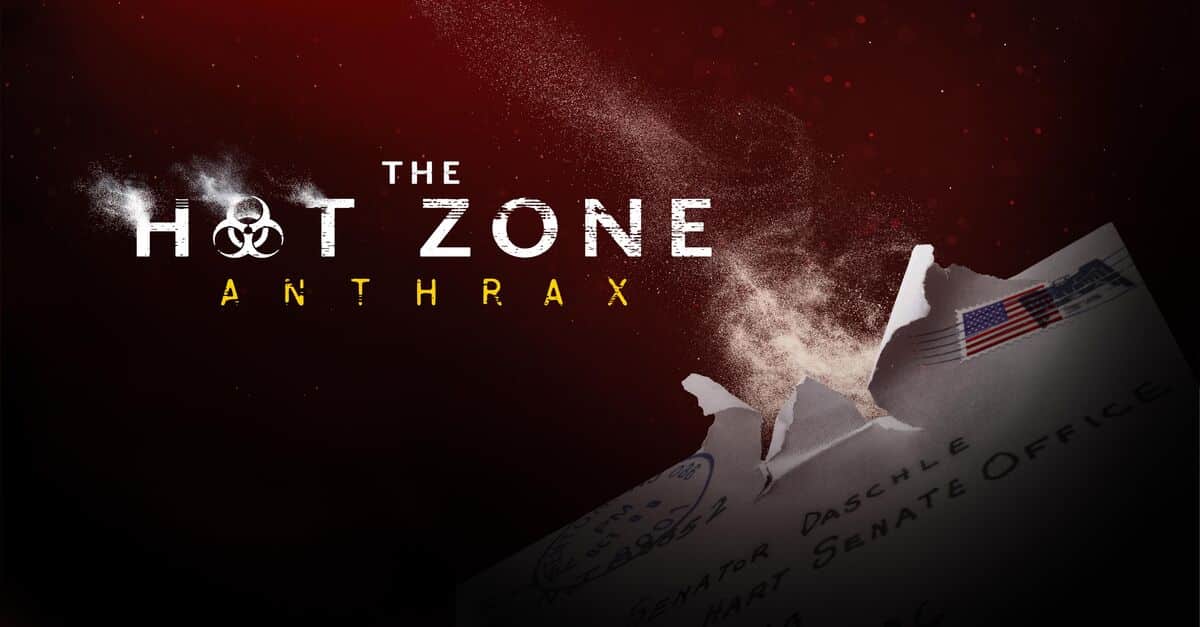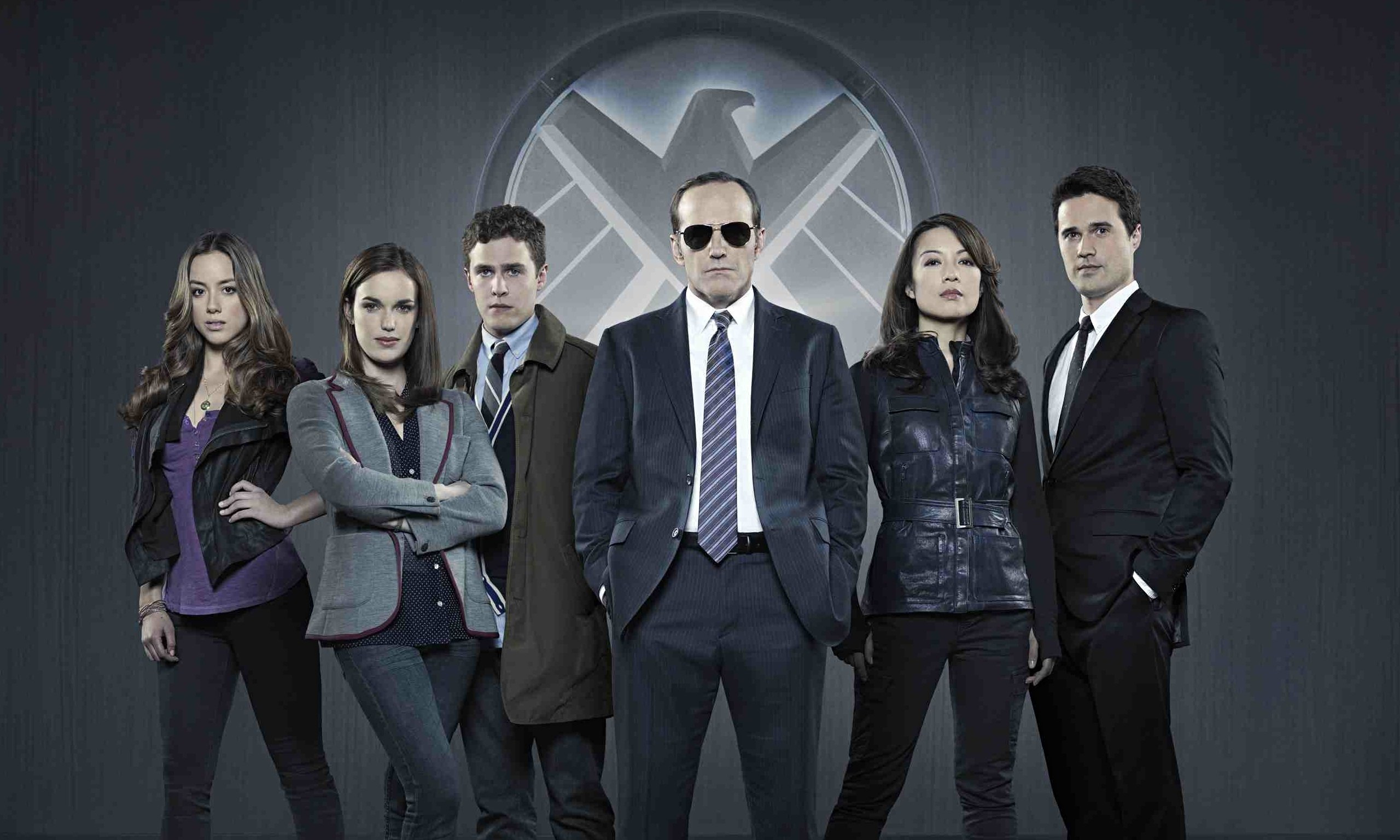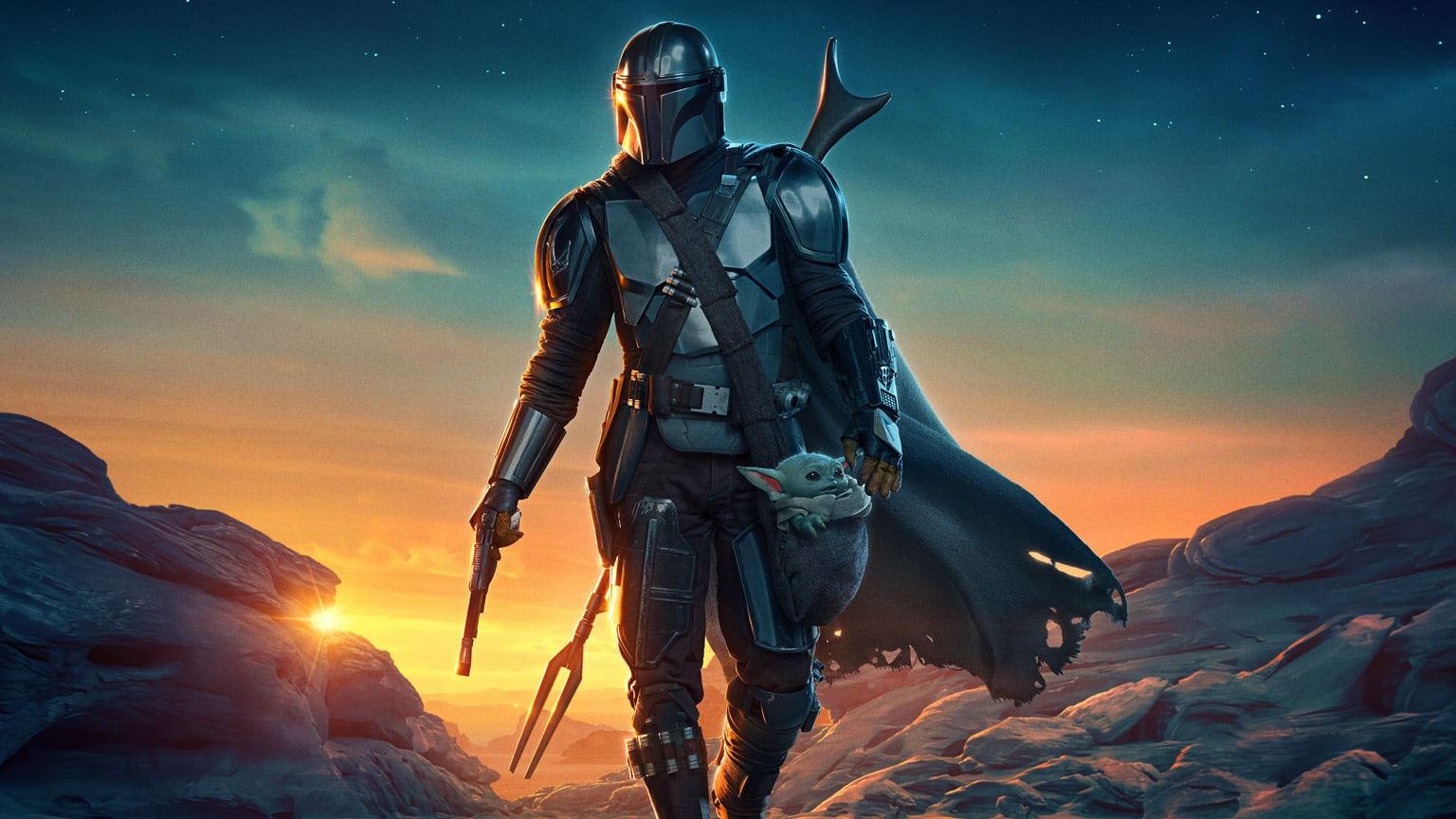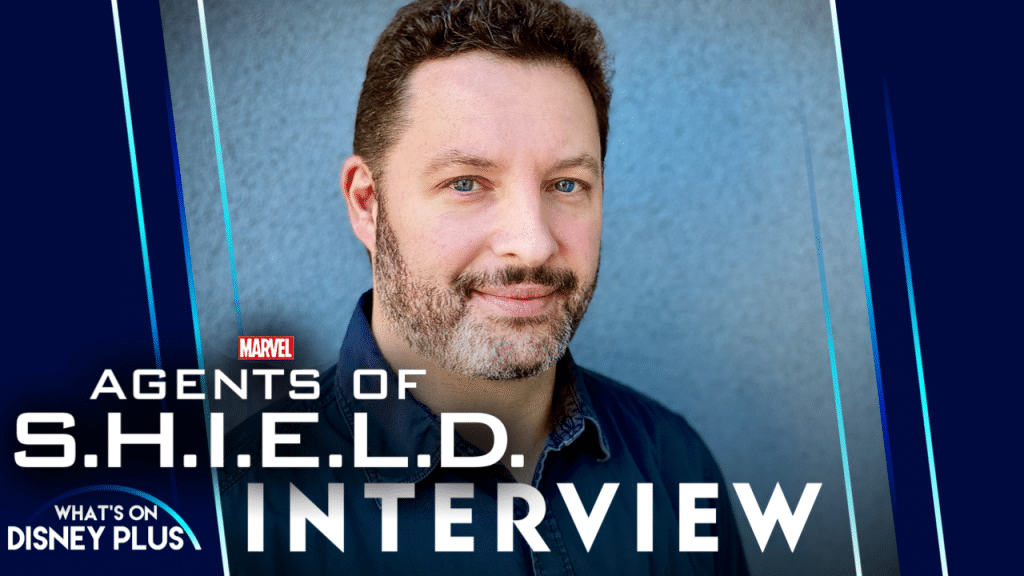
Marvel’s Agents Of Shield – Eric Litman Interview
Recently, I got to speak with editor Eric Litman who’s recently worked on Marvel’s Emmy-nominated series “Agents of S.H.I.E.L.D” and National Geographic’s award-contending show “Hot Zone: Anthrax”.
With Agents of S.H.I.E.L.D, Eric honoured the characters’ history while keeping the show grounded in reality through performance selection, pace, and music. The emotional beats were crucial and the pace needed to be slowed down so that the moments would land. Heavily choreographed fight scenes were a main component of the show, and the heroes and villains always needed to look “super”. His editing philosophy is to let the footage tell him how to cut and when it came to editing for a powerhouse series like this, the process was exciting and challenging.
Eric’s work on Hot Zone: Anthrax was a much different tone to undertake. It was achieved with a slow, deliberate cutting-style, including hanging longer on shots to feel an emotional impact. Eric edited the pilot and is especially proud of his work on episode five, “Stentor Roeselli,” the episode in which Agent Ryker faces off with Bruce Ivins in a 9 minute interrogation scene.
In addition to those shows, Eric’s had the opportunity to work as an editor on many well known shows, including Black Sails, Magnum P.I., Charmed, and the upcoming Star Trek: Picard, airing in 2022
Eric Litman, would you like to introduce yourself and what shows you’ve worked on?
So I worked on Agents of S.H.I.E.L.D., Marvel’s first foray into television for seven seasons. I cut a number of their premieres and finales, including the series finale; amazing experience. Prior to all that, I grew up in Philadelphia, went to school for film, moved out here about 20 years ago in Los Angeles, and went to AFI for editing and just been working pretty steadily ever since.
What is the primary job as an editor? I mean, I tend to do it obviously for YouTube, but what’s kind of the difference doing it for television to just what we might do at home?
So the primary goal of the editor is to serve the story. You get a script, you read the script, and you meet with the directors and producers and you understand what the intent of what we’re setting out to achieve here, and it’s your responsibility as an editor to make the lead look good, obviously, and do whatever you need to do to serve the story to move things forward. So when doing that, when you’re putting together scenes, you’re choosing the best performances, you’re making sure that the arc of the character is flowing, and you want to make sure that you’re telling the story that you want to tell in a clear, concise way.
With YouTube, where you’re trying to keep audiences’ attention, is that a little bit different in terms of doing television as well? Do have to keep changing up every 10 seconds to kind of keep people’s attention, or can you go a little bit longer because it’s television?
So people’s attention spans are … They’re changing now. People like things to move pretty fast, but that being said, every story or every show is different. I let the material speak to me, tell me what needs to happen. Agents of S.H.I.E.L.D. was a network TV show. It was very fast-paced, so we definitely moved things in a very quick tempo. So we did that in order so that when we had emotional moments, we could let things breathe. We can open it up and just let us sit in that moment there so that way it resonates with the audience. Other shows are different. I worked on Hot Zone: Anthrax. That was more of a character piece, more of a study what happened. So at times when there was action, yeah, we would make things fast, but a lot of times it was a little bit of a slower pace.
What is the difference in editing different genres?
You know, again, I just let the footage speak to me. If we’re having … Agents of S.H.I.E.L.D. was a lot of action and a lot of car chases, a lot of fights. So those things were fast. You wanted to keep the momentum going. You wanted to keep people’s attentions there, and you would cut things very, very quick, and yeah, you had to … you don’t want to fall on the risk of making things look cut. That’s not good editing. That wouldn’t be good editing. So in order to do that, you have to change the angle, change the sizes, use different coverage from time so that way you’re constantly keeping people’s attention spans engaged.
Hot Zone: Anthrax, different genre, different way of editing. We’re with the characters; we’re letting them tell us, or tell me rather, when to cut, or more importantly, when not to cut. As an editor, that’s a hard thing to understand.
How long does roughly one episode take?
Well, so again, every show’s different. When Agents of S.H.I.E.L.D., it was fast-paced. It was a fast-paced show, and it was a fast-paced working environment. We were going up against air dates, so we would have a very finite amount of time to put the stuff together. Unfortunately, there was a lot of footage to go through, which was good because it gave us a lot of options, but it was a lot of work in a short amount of time. So, generally, you would have on Agents of S.H.I.E.L.D., it was anywhere between an eight and nine-day shoot, and we shot over in Culver Studio, which was an amazing experience; great old-school studio.
So I’d have about eight or nine days of production, and then depending on the schedule, anywhere between two to four days for the editor’s cut. And then again, depending on the schedule, two to four days for director’s cut, depending if we’re going against the air date or if we had big visual effects that we had to start moving forward on, and then producer’s cut, studio network cut and lock. Again, those were all about, depending on schedule, two to four days.
On Agents of the S.H.I.E.L.D., I cut 40 episodes. So I worked with a lot of different directors, a lot of the same directors a number of times. So the directors I worked with multiple times, you develop a quick shorthand, and you’re able to sort of anticipate what they’re looking for. They know what you bring to the table, and it’s just sort of real easy collaboration. On different episodes, you might get a director involved a lot sooner. We say, “Hey, we should look at something here. We might want to get more footage for something.”
On Hot Zone: Athrax, because we were … It was a different time than Agents of S.H.I.E.L.D. We were full blown into the pandemic. Everyone was at home. We used Zoom a lot to communicate, FaceTime. And when reviewing cuts, we used this program called Evercast, which is similar to what we’re talking to what now, but we were able to stream the cut at the same time. So the director that I was working with, Daniel Percival, terrific director, he directed the pilot that I cut, and I was able to hop into an Evercast session with him at any given moment and say, “Hey, we should look at something here,” or “Let’s look at this,” or “Let’s talk about something,” and we were able to review scenes almost immediately and discuss it, which was really beneficial because when he went back and had to do some additional pick-ups, I was able to show him scenes, and we were able to discuss and collaborate about what additional footage we may want. So it was a great tool to utilize.
How much difference does technology make to editing?
It’s terrific. I mean, it has its limitations, you know? The camaraderie of being in-person, that sometimes is not always there, but to be able to communicate very quickly to show things in real-time, and they shot in Canada on Hot Zone; I was in Los Angeles. So barring time zones, we were able to really focus on the material and discuss in real-time what the potential issues are or things we may want.
Are there any tips that you’d like to give to any inspiring editors out there?
Well, I would say patience and perseverance. Those are real good tools to utilize; good work ethic, work hard, and the right people will take note of that, and they will help you move forward.
Do you get to the point where you see that clip so many times that you’re sick of it?
Well, there’s definitely, you have to … and this sort of came into play with … I just did a pilot, and we were reviewing things over and over and over again. The objectivity of what you’re looking at is it’s easy for that to go away. So a lot of times what I’ll tell people, directors, producers, even myself, is, “Well, what, when you, when you first saw that scene or you first saw that shot or whatever you’re looking at, what was your reaction?” Because that’s the true response.
Do you work on different projects at the same time, or do you just focus on one at a time?
Well, I usually focus on just one at a time. That being said, because the world is so fast paced now, I’m sometimes working on multiple episodes at once, which can be cut, which can be tricky but fun.
What would be your dream project to work on?
Oh, wow. There’s a number. I mean, I’m looking at your background now. It’s a lot of Star Wars there. I mean, anything Star Wars, that would be pretty sweet. The new Obi-Wan is just phenomenal and their shows are just … They’re really well put together, good storytelling. The two shows I’m watching right now that I’m absolutely loving are Under the Banner of Heaven and The Staircase. Those are just great shows and just masterfully put together.
What has been your favourite Disney Plus Original so far?
Well, you got to go with The Mandalorian. It’s really, really well put together. We capture the flavor of Star Wars from our youth. It’s just really good storytelling. John Favreau, Dave Filoni, they’re just … In terms of moving the needle ahead in Star Wars, they’re crushing it. It’s just really good.
You can check out “Agents Of Shield” now on Disney+.

